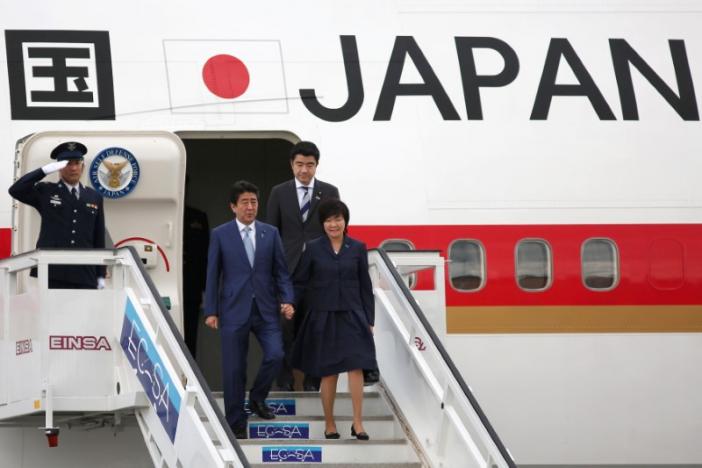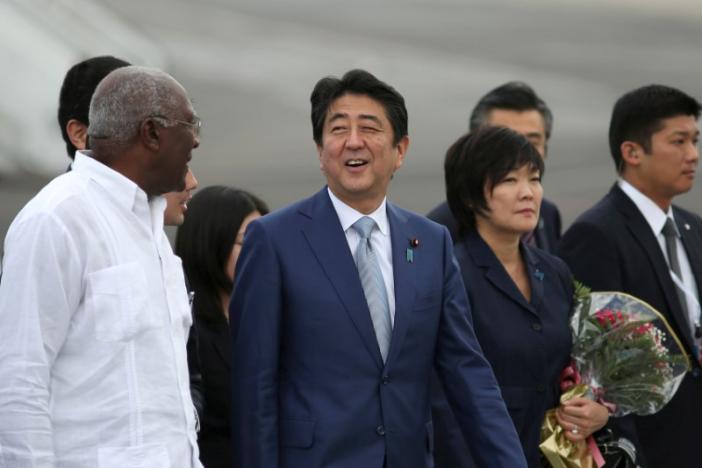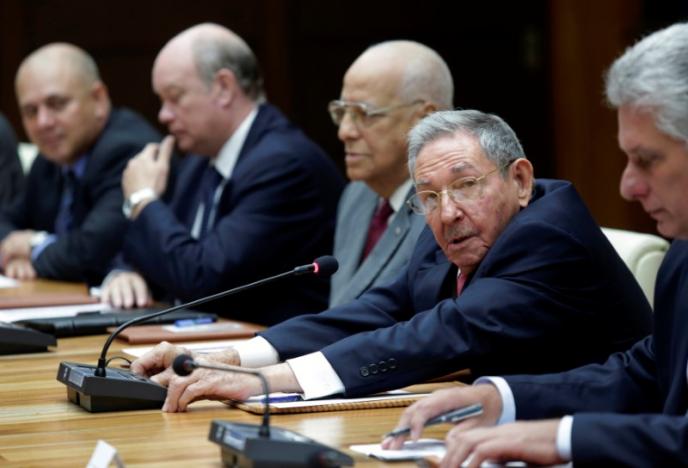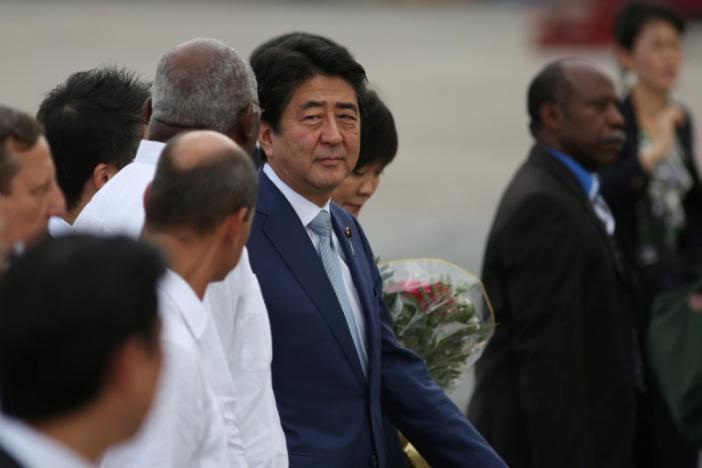
(REUTERS) Japan’s Prime Minister Shinzo Abe became the first Japanese leader to visit Communist-ruled Cuba on Thursday, landing in Havana to hold talks with Cuban President Raul Castro on topics from boosting trade to curbing North Korea’s nuclear program.
Abe’s visit to the Caribbean island is one of a slew by western leaders since it began normalizing ties with the United States nearly two years ago. U.S. President Barack Obama visited Cuba in March.
In an interview published in Cuba’s Communist Party newspaper Granma on Thursday, Abe said he wanted to discuss trade, investment, cooperating on development and strengthening tourism exchange.
“I also want to exchange opinions with a Cuba that holds great influence among the non-aligned countries about the reform of the United Nations Security Council, nuclear disarmament, the situation in Asia and other topics involving the international community,” he was quoted as saying.
Abe flew in to Cuba from New York, where he told the annual U.N. General Assembly on Wednesday that the threat posed by North Korea’s nuclear program this year was “substantially more serious” than it was in the past.
Cuba is one of North Korea’s few diplomatic allies and a fellow member of the non-aligned movement formed in 1961 by states wanting to avoid siding with the United States or Soviet Union.
Japan has a long history of trade with Cuba, importing seafood, tobacco and coffee while exporting machinery.
Abe said he hoped to expand that economic relationship in a new era heralded by Cuba’s detente with the United States and business-friendly reforms.
“I believe firmly that Japanese companies can, as reliable partners, make a notable contribution to a Cuba that is updating its socio-economic model,” Abe said



The reorganization of Cuba’s debt towards Japan, signed this week, should help towards that goal, he said. Cuba’s other long-term trading partners have already used debt forgiveness, swaps and new financing to try to win investment opportunities on the island.
Japanese firms wanting to gain a foothold in the country of 11 million people ahead of their competitors have descended there en masse in recent months, scouting for openings.
Trading house Mitsubishi Corp opened a Havana office in July, telling Reuters it was keen to establish some infrastructure projects in Cuba which the Japanese government might help finance..
“I want to cooperate with Cuba, joining forces as much in the public sector as in the private one,” Abe said.
(Additional reporting by Nelson Acosta; Editing by Chizu Nomiyama)







